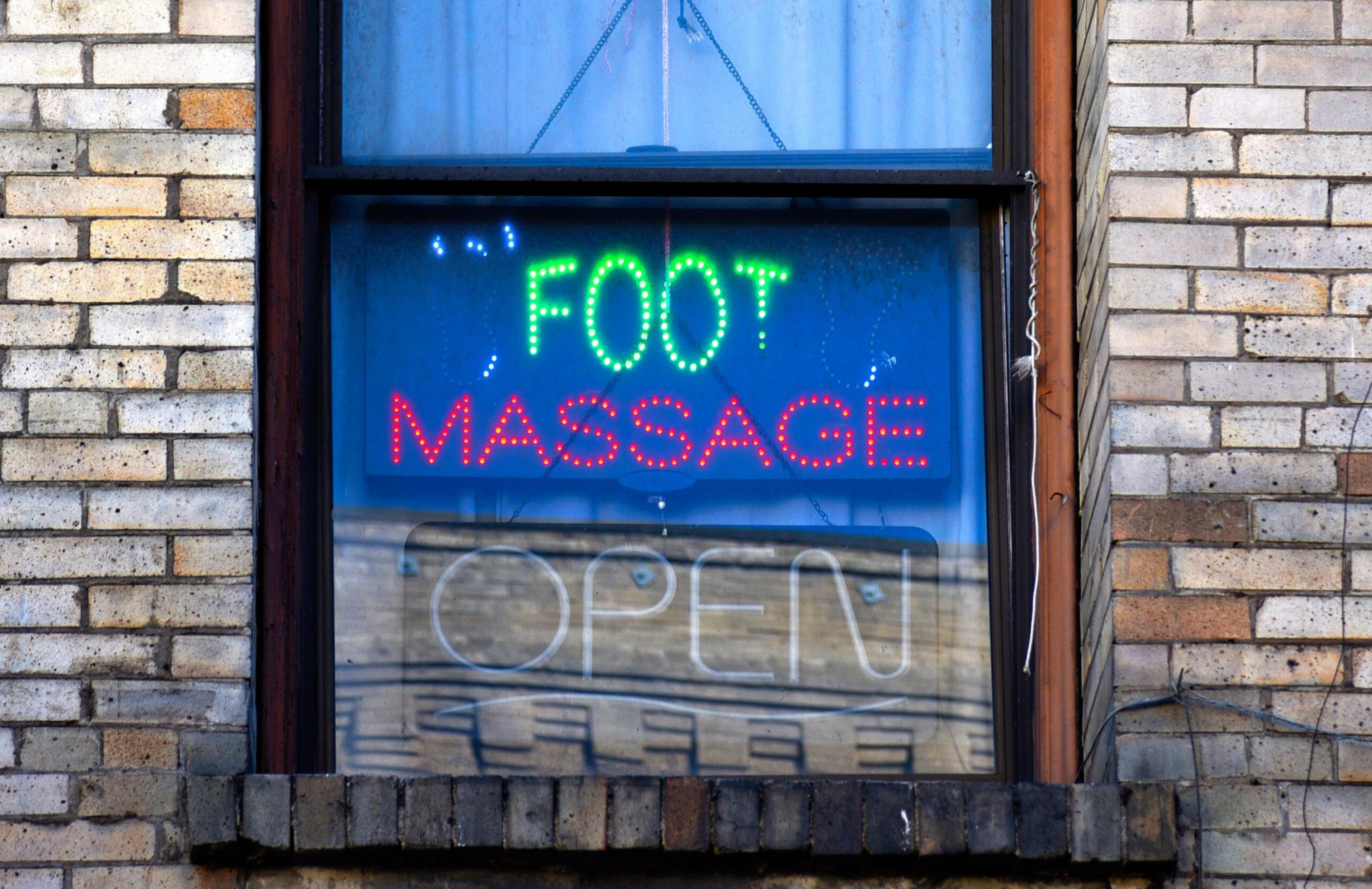San Francisco officials have long been in a whack-a-mole battle with massage businesses offering illicit services. Massage therapists were regulated by the police department in the past, and longtime practitioners like Candace Combs recall getting fingerprinted and “treated like criminals” when trying to get permits.
A proposed ordinance (opens in new tab) heard by the Board of Supervisors Land Use and Transportation Committee on Monday is meant to streamline the process for legitimate massage businesses to operate and expand the umbrella of businesses easily allowed to offer massage services to include acupuncturists and chiropractors.
Regulation over the industry was eventually passed from SFPD to the Department of Public Health and a series of city laws were passed over years to restrict illegal activity, including putting San Francisco massage businesses in their own specific category in the planning code to curb issues around human trafficking and prostitution.
But the restrictions had the unintended consequence of capturing legitimate businesses in their wake and subjecting them to excessively burdensome regulation, industry advocates say.
In order to address the issue, the Board of Supervisors unanimously passed a law (opens in new tab) last December to include massage businesses under the larger health services planning category and streamline the process for single proprietorships to legally operate. It also allowed the ability for hotels and personal services like nail salons or beauticians to offer massage services.
The ordinance—introduced by District 8 Supervisor Rafael Mandelman—is meant to plug a hole in the initial legislation that left acupuncturists and chiropractors without similar privileges. As the ordinance would contain a “significant change” to the planning code, the measure was continued to the committee’s meeting next week, when it will be voted on and likely kicked over to the full Board of Supervisors for final approval.
“The planning code is not the right place to have these limitations particularly not when they were making life harder for small business people to keep doing a business that’s serving the community and keeping them gainfully employed,” Mandelman said. “As important as it to find things that need to be prohibited, we need to find the things that are prohibited or made difficult and make them easier if those are things that are broadly beneficial.”
Combs, the owner of In-Symmetry Spa in the Mission, said the changes to the law will have the impact of bringing in massage practitioners into the regulated system and support so-called bodyworkers who have struggled under pandemic-related shutdowns.
“That’s been our point all along. If you make it easier people will actually pay the city to be able to operate,” Combs said. “We’ve been crushed during Covid. We’ve made no money and a lot of businesses are deeply in debt, this is a way that people can start pulling up from this crisis.”
Supervisors passed the original measure last December and it was spearheaded by District 9 Supervisor Hillary Ronen. The measure liberalizes zoning for massage businesses in the city’s commercial districts and treats them as health services that are regulated much in the same way as neighborhood clinics.
The law also streamlines the process for massage professionals to use their homes as a place of business and attempts to address the issue of prostitution by prohibiting massage businesses at properties where a similar business was shut down due to a violation of planning or health codes.
“What has happened in the last couple of years is that people have realized massage is healthcare, and that just being in the industry does not equal human trafficking or sex work,” Combs said.
The legislation was partially inspired by a 2019 incident in Ronen’s district where dozens of massage therapists and other bodyworkers were threatened with eviction (opens in new tab) from ActivSpace—a coworking complex in the Mission—for failing to adhere to zoning rules.
Combs called human trafficking a “horrific, horrific problem,” but she said part of the problem in San Francisco is the limited staff available for inspections. She wants revenue brought in from new massage businesses going through the permitting process to help address the issue.
“We are morally opposed to sex trafficking,” Combs said. “We want to help. Just enlist us as part of the process rather than treating us as part of the problem.”
